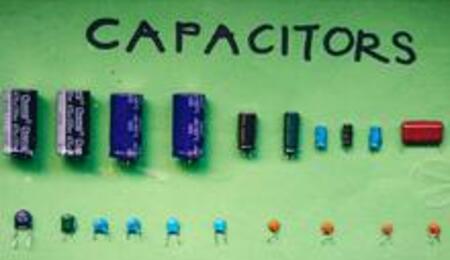Powered by Hemp

Industrial hemp is unbelievably versatile and is already used for paper, textiles, biodegradable plastics, construction, health food, and fuel. The Ford Model T was powered by biofuel made from hemp and contained biopolymer materials developed from the hemp plant.
Hemp engineering has now pulled another Ace out of the pack in the form of hemp batteries. Batteries that could be more powerful than either their Lithium or Graphene counterparts!
Researcher Robert Murray Smith posted a hemp battery experiment to his YouTube channel in 2016 to demonstrate this potential. By observing the Volts by Amps curve of both hemp and lithium batteries, Smith found that the power underneath the hemp cell was a value of 31. In contrast, that of the lithium cell had a value of just 4.
As far back as 2014, researchers at Clarkson University, New York, discovered that waste fibres from hemp could be transformed into 'ultrafast' supercapacitors that perform better than Graphene. Graphene is a unique synthetic carbon material lighter than foil, strong enough to be bulletproof and one of the most conductive compounds ever discovered.
A capacitor stores electric charge on one or more conductors separated by an insulator. Batteries have exceptional energy densities but are more efficient and have a better lifespan when the power is drawn in a slow controlled manner.
Therefore, capacitors are often used to assist batteries used for power-intensive operations in motor engines. The power a capacitor can hold depends directly on the material from which it is made. Hence, materials with high conductivity make for better capacitors.
Graphene holds an impressive amount of power and discharges almost instantly, providing power quickly as needed. Hemp, however, is emerging as a great alternative. It is believed that High-performance hemp-based supercapacitors could transform the way we make and use energy.
The 2014 experiment saw the US University team cook" leftover hemp fibre. The fibres were transformed into carbon nanosheets through a process called hydrothermal synthesis. Once the bark was cooked, the lignin and the semi-cellulose was dissolved, leaving carbon nanosheets, which were then built into electrodes.
An ionic liquid was then added, resulting in a supercapacitor operating at a broad range of temperatures, a high energy density and displaying some of the best power-energy combinations reported for any carbon. These hemp-based carbon nanosheets can allegedly outperform standard supercapacitors by nearly 200%.
Hemp cannot do everything Graphene can, but it works great for energy storage and costs $500 to $1,000 a tonne compared to Graphene, which costs $2,000 per gram!
Countries like Canada, China, and the United Kingdom rely heavily on industrially grown hemp in clothing, jewellery, building materials, and other products. However, the waste fibre that is left over is typically sent to landfills, which is crazy considering its potential usefulness. Everything from electric cars to power tools can make use of supercapacitors.
Hemp power potential is attracting some credible interest from big businesses. In 2018, Electric motorcycle manufacturer "Alternet" announced that it was developing alternative power for its "ReVolt Electric Motorbikes."
It is well known that hemp biofuel is an excellent alternative to traditional fuel. Now that the hemp plant can also be used to produce batteries, the sky is the limit! It is a real possibility that hemp could replace lithium in the future, massively reducing environmental harm.
Only the global prohibition of cannabis prevents hemp from fulfilling its full potential and improving the world we live in. Let's hope that moving forward, the many benefits of hemp and the full scale of its uses are not ignored for much longer.








